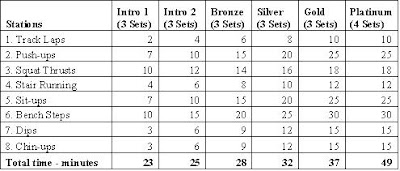[Dragonboat] The Inner Metronome
I grew up as a classically trained musician. I have played in quartets and orchestras as a violinist / violist. One of the most important things in music is Time. We need to be on the right beat. We need to feel the rhythm.
In a quartet, everyone needs to be one - breathing together, playing together, knowing each other's parts and anticipating the music. (Of course, we must train so that we are also in tune and musical - but that's for another entry).
In dragonboat terminology, we call this: staying in sync.
The Importance of Sync
This doesn't even need an explanation. "Sync" refers to a team's ability to paddle together. In a boat with 20 paddlers, it is important that paddles enter / exit the water together, that paddlers move according to a common rhythm, following the inner metronome.
Problem Definition: Orchestra
In an orchestra, there are various musicians and one conductor. The conduct sets the direction for the beat, the musicality, and acts as the cohesive force between the different musicians. In sections such as the violas (*cough), there are 8-12 violists. Towards the back, we tend to follow those in front of us. At times we are lazy and don't follow the true rhythm and just "copy" those in front of us. What ends up happening is that everyone is slightly off - time delay, reaction speed, etc. This leads to a problem commonly known in dragonboat terms as: caterpillar. Like a caterpillar, the paddles move one by one, starting from the front pair, and moving to the back.
The solution to this in an orchestra is simple: "everyone, follow the conductor!" However, dragonboating doesn't have a "conductor" and hence everyone must be following the same metronome inside of their body. String quartets provide a good analogy to learn about "sync" as quartets also don't have conductors.
Solution Approach: Learning from the Quartet
When I was in "band camp", I played with a few other musicians in a string quartet (2 violins, 1 viola, 1 cello). Everyone had their own parts and we had to be aware of everyone else's parts. We had to be tight. We needed to be able to anticipate each other's movements, breathings, and playing. There needs to be synergy.
One thing we tried was to play by facing away from each other. (Usually, we would all face each other, give each other eye cues, etc.) By facing away, we were essentially playing "blindfolded". Like Daredevil, by being "blind", our other sensed were sharpened. We started listening to each other more acutely, and more importantly, developed a greater sensitivity to the inner metronome. Not the inner metronome of each person, but of the quartet and of the piece we were playing.
I suggested this analogy to one of our dragonboat coaches (which he tried next week). It was pretty cool to see it applied for the first time (i.e. paddling together with our eyes closed). I believe that these drills can be refined to sharpen various sensory perceptions. And in developing a championship team, we will be both strong and sensitive (sensitive to the inner metronome and moving as one).
Concluding Thoughts
This is one of many possible analogies from music. There are other analogies from various disciplines of study that we can learn from. For example, my studies and my personal fitness are very connected. The key takeaways in paddling with closed eyes are:
- an increased awareness of our other sensory perceptions and our environment
- a developed dependence on the boat's inner rhythm, finding that rhythm, and staying in sync with it.
Of course, we paddle with our eyes open. So when race day comes, we'll be dragonboat ninjas!

Comments